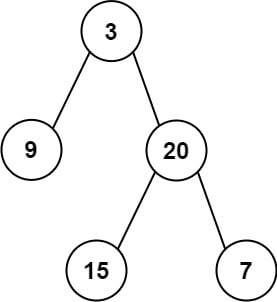Given the root of a binary tree, return the sum of all left leaves.
A leaf is a node with no children. A left leaf is a leaf that is the left child of another node.
Example 1:
Input: root = [3,9,20,null,null,15,7]
Output: 24
Explanation: There are two left leaves in the binary tree, with values 9 and 15 respectively.
Example 2:
Input: root = [1]
Output: 0
Constraints:
- The number of nodes in the tree is in the range
[1, 1000]. -
-1000 <= Node.val <= 1000
SOLUTION:
# Definition for a binary tree node.
# class TreeNode:
# def __init__(self, val=0, left=None, right=None):
# self.val = val
# self.left = left
# self.right = right
class Solution:
def inorder(self, root, isLeft):
if root:
self.inorder(root.left, True)
if isLeft and not root.left and not root.right:
self.total += root.val
self.inorder(root.right, False)
def sumOfLeftLeaves(self, root: Optional[TreeNode]) -> int:
self.total = 0
self.inorder(root, False)
return self.total



Top comments (0)